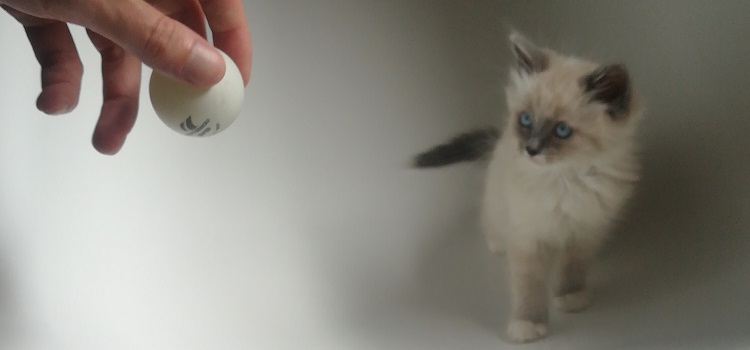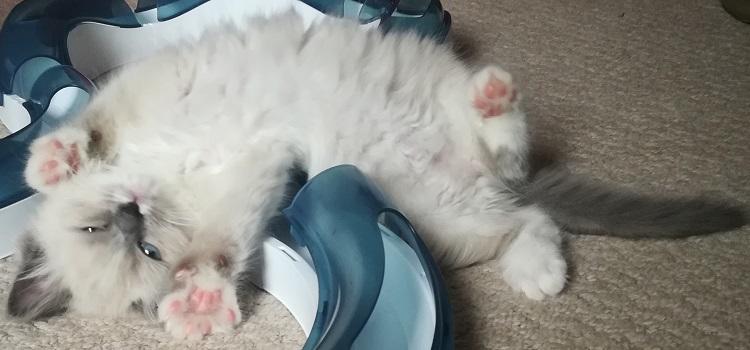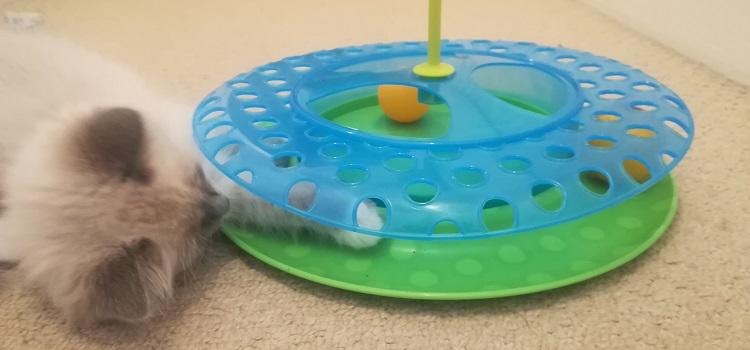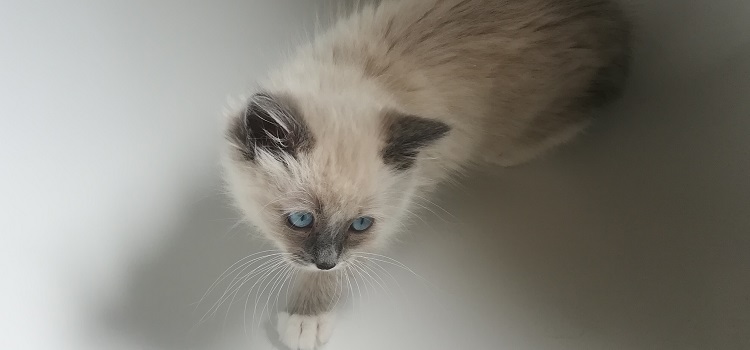Prosecco & Petals
Guide to ragdoll kittens
how to kitten proof your home
Read on for guidance about how to make your home safe for your new arrival and how to adapt it as your kitten grows.
do I need to make my home kitten proof?
Yes. Just like having a toddler, kittens will want to explore and learn about everything in your house. They will not instantly know what can cause them harm, is bad to eat and what might make scary noises. It is vital to adjust your home to ensure that your kitten can explore without having any accidents or scaring themselves too much: This is a continuous process that starts simple but will need to become more watchful as your kitten starts to climb and jump higher.

how to initially make your home kitten proof - create a safe room
After you have collected your kitten from your breeder, they will generally have a level of socialisation and be litter trained. However, your house will be full of new smells and places to explore, which can be quite overwhelming. It is recommended to start your kitten off in a 'safe room', which contains their food, water, litter tray, some kittens games and a couple of hiding spaces.
In this room, make sure to place down a few mats in case of accidents, remove any expensive ornaments and cover over any valuable fabric surfaces. Your kitten will need time to adjust and telling them off straight away can instil fear.
how to make your home kitten proof - household items to secure
House plants – these can be easily knocked over, and some plants are not cat-friendly.
Cable and wires – kittens will instantly chew on these, and this can be a dangerous hazard.
String or ribbon – kittens can chew, eat or get wrapped up in these.
Delicate fabric surfaces – these should be covered with a rough blanket unless you do not mind scratching.
Curtains – kittens love to climb, hide in and chew the ends of curtains. If you have an expensive pair, it may be wise to replace these temporarily.

how to make your home kitten proof - room by room
how to kitten-proof your bathroom:
Kitten's love to explore, and much of this is done by sniffing and licking new surfaces: therefore it is vital to move all cleaning products, disinfect around the toilet area with animal-friendly cleaner and put all medicines away in cabinets. Do expect your kitten to jump on any surface so also make sure that glass perfumes and lotions are somewhere secure. Lastly, keep the toilet seat covered.
how to kitten-proof your kitchen:
The kitchen is one of the hardest rooms to kitten-proof, but a general rule is to expect that your kitten may jump on counters when you are not there so also wipe surfaces before preparing food. In terms of storing items, it is wise to keep all kitchen cleaners and detergents in a cupboard that cannot be pawed open or to invest in a child-proof lock.
TGlass bottles such as those used for spices and jars should be kept in a cupboard to prevent your kitten, knocking them off and creating spillage or dangerous glass shards.
how to kitten-proof your living room:
TVs and cables can look very intriguing to your new kitten who may be tempted to chew or pull on them. Avoid any severe accidents by securing your television to the shelf or wall and encase any visible cables with chew-proof layers.
If you have a sofa that you adore and do not want to be scratched then opt for a think pile throw or put a scratching post nearby and reward your kitten for using it.
how to kitten-proof your departure from the house
Kittens are intelligent, and they will quickly learn your routine and comings and goings: Therefore, it is vital to ensure that your kitten is far away from the door when you leave and arrive so that they do not escape and get lost.
Initially, it is recommended to keep your kitten upstairs with all their toys and food when you go out, so there is a double barrier to keep them safe. For those in flats, it is recommended to tire out your kitten and provide food then to leave when they are focused on eating.
how to kitten-proof your arrive home.
When arriving home, make your entrance quickly and keep a bag at floor height to block the path out: This should ensure that your kitten doesn't dash for the exit.


